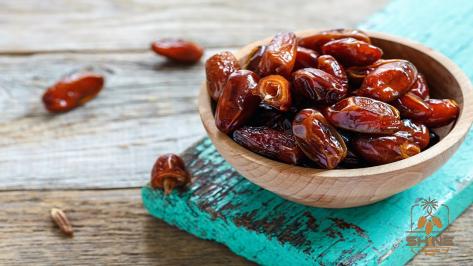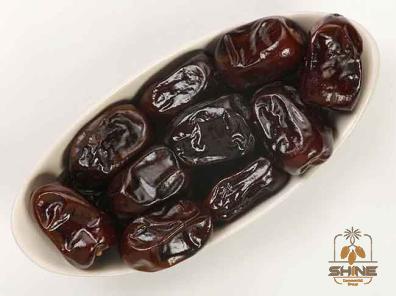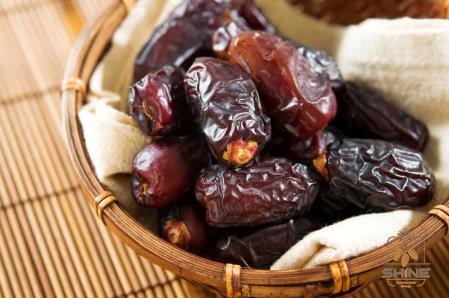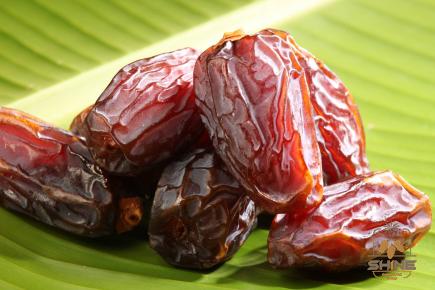In recent years, there has been a surge in the popularity of dates as a healthy and delicious snack option. However, when it comes to dates, there are various varieties available, with Medjool dates and regular dates being the most common ones. While both types offer numerous health benefits, understanding their differences can help you make an informed choice. Join us as we delve into the world of Medjool dates vs. dates, uncovering their nutritional composition, health benefits, and culinary uses. 1. What are Medjool Dates? Medjool dates are known as the “queen of dates” due to their larger size, rich flavor, and soft, chewy texture. Originating from Morocco, Medjool dates are most commonly grown in the Middle East and North Africa. Their cultivation is highly regarded and requires specific growing conditions, including warm temperatures and well-drained soil. Medjool dates are often referred to as the “crown jewel” of dates due to their premium quality and superior taste. 2. Understanding Regular Dates: Regular dates, as the name suggests, refer to the various varieties of dates apart from Medjool dates. These include Deglet Noor, Zahidi, Khadrawy, and Barhi, among others. Regular dates are smaller in size compared to Medjool dates and are commonly found in North Africa, the Middle East, and the United States. They possess a slightly firmer texture and a sweet, caramel-like flavor.

.
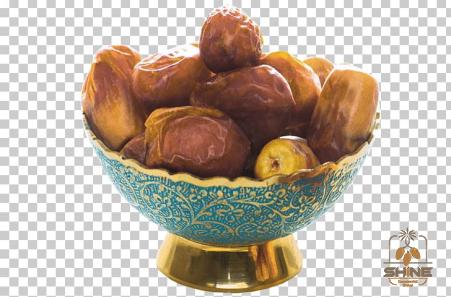 Nutritional Comparison: To evaluate the differences between Medjool dates and regular dates, let’s take a closer look at their nutritional profiles: 1. Macronutrients: Both Medjool dates and regular dates are dense sources of energy, primarily derived from carbohydrates. However, Medjool dates contain higher levels of carbohydrates, with 75 grams per 100 grams compared to regular dates, which contain approximately 63 grams per 100 grams. This higher carbohydrate content makes Medjool dates a valuable energy source, particularly for athletes and individuals engaged in physically demanding activities. 2. Fiber Content: Fiber is an essential component of a healthy diet, aiding in digestion and supporting cardiovascular health. Medjool dates and regular dates both pack a significant amount of dietary fiber. Medjool dates offer around 6 grams of fiber per 100 grams, while regular dates provide approximately 3.5-4 grams per 100 grams.
Nutritional Comparison: To evaluate the differences between Medjool dates and regular dates, let’s take a closer look at their nutritional profiles: 1. Macronutrients: Both Medjool dates and regular dates are dense sources of energy, primarily derived from carbohydrates. However, Medjool dates contain higher levels of carbohydrates, with 75 grams per 100 grams compared to regular dates, which contain approximately 63 grams per 100 grams. This higher carbohydrate content makes Medjool dates a valuable energy source, particularly for athletes and individuals engaged in physically demanding activities. 2. Fiber Content: Fiber is an essential component of a healthy diet, aiding in digestion and supporting cardiovascular health. Medjool dates and regular dates both pack a significant amount of dietary fiber. Medjool dates offer around 6 grams of fiber per 100 grams, while regular dates provide approximately 3.5-4 grams per 100 grams.
..
 The substantial fiber content in both date varieties contributes to digestive regularity and helps in preventing constipation. 3. Micronutrients: When it comes to micronutrients, Medjool dates outshine regular dates in terms of specific vitamins and minerals. Medjool dates are considered an excellent source of potassium, offering 20% of the recommended daily intake (RDI) in just one serving. They also provide significant amounts of magnesium, copper, and vitamin B6. While regular dates contain some vitamins and minerals, they generally have lower levels when compared to their Medjool counterparts. Health Benefits: 1. Digestive Health: Both Medjool dates and regular dates promote digestive health due to their high fiber content. The fiber aids in maintaining regular bowel movements, preventing constipation, and promoting a healthy gut microbiome. Regular consumption of dates can alleviate digestive disorders such as irritable bowel syndrome (IBS) and improve overall digestive function.
The substantial fiber content in both date varieties contributes to digestive regularity and helps in preventing constipation. 3. Micronutrients: When it comes to micronutrients, Medjool dates outshine regular dates in terms of specific vitamins and minerals. Medjool dates are considered an excellent source of potassium, offering 20% of the recommended daily intake (RDI) in just one serving. They also provide significant amounts of magnesium, copper, and vitamin B6. While regular dates contain some vitamins and minerals, they generally have lower levels when compared to their Medjool counterparts. Health Benefits: 1. Digestive Health: Both Medjool dates and regular dates promote digestive health due to their high fiber content. The fiber aids in maintaining regular bowel movements, preventing constipation, and promoting a healthy gut microbiome. Regular consumption of dates can alleviate digestive disorders such as irritable bowel syndrome (IBS) and improve overall digestive function.
…
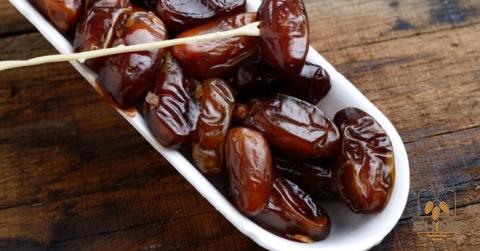 2. Energy Boost: Dates of all types are renowned for their energizing properties. The natural sugars in dates, including fructose, glucose, and sucrose, provide a quick energy boost. Medjool dates, with their higher carbohydrate content, offer a faster and more sustainable source of energy, making them an excellent pre-workout or post-workout snack. 3. Heart Health: Both Medjool dates and regular dates promote heart health due to their high levels of potassium. Potassium helps regulate blood pressure, reducing the risk of hypertension and cardiovascular disease. The significant fiber content in dates also contributes to maintaining healthy cholesterol levels, further enhancing heart health. 4. Bone Health: Medjool dates, in particular, contain significant levels of magnesium, a mineral crucial for maintaining bone health and preventing osteoporosis. Magnesium aids in the absorption of calcium and vitamin D, essential for bone strength and integrity. Regular dates also provide some amount of magnesium, albeit in smaller quantities.
2. Energy Boost: Dates of all types are renowned for their energizing properties. The natural sugars in dates, including fructose, glucose, and sucrose, provide a quick energy boost. Medjool dates, with their higher carbohydrate content, offer a faster and more sustainable source of energy, making them an excellent pre-workout or post-workout snack. 3. Heart Health: Both Medjool dates and regular dates promote heart health due to their high levels of potassium. Potassium helps regulate blood pressure, reducing the risk of hypertension and cardiovascular disease. The significant fiber content in dates also contributes to maintaining healthy cholesterol levels, further enhancing heart health. 4. Bone Health: Medjool dates, in particular, contain significant levels of magnesium, a mineral crucial for maintaining bone health and preventing osteoporosis. Magnesium aids in the absorption of calcium and vitamin D, essential for bone strength and integrity. Regular dates also provide some amount of magnesium, albeit in smaller quantities.
